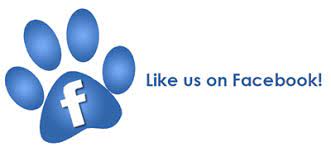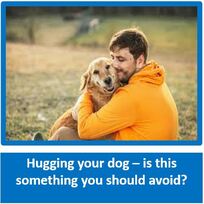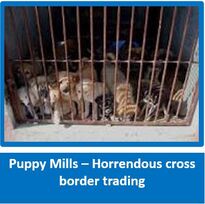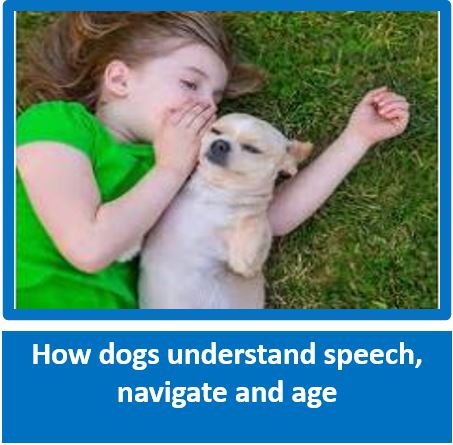
Please visit and LIKE our Facebook Page and share with family, friends and on your own Facebook page, and ask them to share further – it is only by working together and sharing knowledge and education that we can improve the lives of dogs and assist owners. We do not inundate you with posts – an average of 5 per week, and the odd Did You Know and General Post. Thank You!
i HAVE A NEW PUPPY – NOW WHAT?
Guest Contributor - Kathy Clayton
Accredited Behaviour Consultant (ABC of SA™) (Canine) ; Professional Dog Trainer
.

CONGRATULATIONS, welcome to the new world of dogdom. If you have received a pamphlet such as this as a handout at Puppy Kindergarten, well done, you are starting off correctly. However, you might still have many questions about your puppy, and let’s try to help you.
THE FORMATIVE MONTHS The most important time in your puppy’s life is 6 weeks to 6 months. This is the time when you lay the foundation for character, temperament and behaviour, which will last for the rest of his/her life. It is VERY IMPORTANT how you handle your puppy during this time. What a puppy learns now will be imprinted firmly, and it will be very hard to change or eradicate negative behaviour later on.
THE FIRST STAGE Your puppy should have received its first inoculation when you collected it. Puppy Kindergarten is then recommended as soon as the puppy is 8 weeks old. If anyone “advised” you that your puppy must have 4 inoculations before being taken out of the house, or that the puppy should be 6 months to start training – THESE PEOPLE ARE VERY OLD FASHIONED AND TWENTY YEARS OUT OF DATE!! Puppies who do not socialize during the formative months, will always have problems during their life –especially large breeds and terriers.
AROUND THE HOUSE Puppies always behave in a natural manner. What is natural to a dog, sometimes is unacceptable to its owner. Always remember what genetics a dog has (what it was originally bred to do) – a Labrador or Golden Retriever will pick up things and carry them around. Dachshunds and Jack Russells were bred to burrow underground, and Staffies and Bull Terriers were bred to fight other dogs.
You should NEVER PUNISH a puppy (or even older dogs), as they have no concept of right or wrong. YOU MUST NEVER, NEVER HIT A PUPPY /DOG.
Dogs have three instincts – FLIGHT, FREEZE OR FIGHT. If you hit a puppy/dog it will either run away and be scare; or stand around and take the hit; or the puppy/dog could retaliate in the only way it can, by attacking or biting the person who is “attacking”. (If someone came up to you and hit you, or tried to hit you, you would probably react in exactly the same way.
The modern concept of puppy and dog training is to IGNORE OR DISTRACT any behaviour that we don’t want the puppy to do, and PRAISE AND REWARD all the positive behaviour of the puppy/dog.
QUALITY TIME Try to set aside quality time every day to spend with your puppy. It is not enough to put it outside to play on its own, or with the other household dogs. You need to create a bond, and a positive relationship with your puppy. The time spent needs to be short in the beginning as puppies tire easily. Encourage positive play with various toys – NEVER AGGRESSIVE OR ROUGH PLAY (especially in terriers_ - mental as well as physical stimulation is very important to a young pup. Throwing different toys and retrieving them is rewarding. Hide and seek is another fun game. Don’t always use the same toy as some dogs can become obsessed (especially German Shepherds and Border Collies.)
POSITIVE REINFORCEMENT Always praise a puppy/dog for coming to you. NEVER get angry when a dog comes to you, no matter what he/she has done. If you call a dog to you and then shout and hit it, when you next call it to come, it will think twice and probably not come. (If someone called you to come and then hit or shouted at you, would you go back to that person the next time he called?)
If a puppy is doing something that you don’t want it to do, use a distraction technique (a small can filled with a few stones which you shake; or a spritz of water from a water bottle or water pistol.) Once the dog is distracted then call it to you and praise it for coming.
PUNISHMENT As mentioned above, it is not advisable to punish your puppy. However, you can make what the puppy is doing, punish him/her.
If a puppy likes to chew the corners of furniture/cupboards/chairs etc then THAT must punish the dog. You can use any of the following to put onto the item to make it not taste nice: Zambuc cream; Stop bite (the stuff they put on children’s nails) bitter aloe or Avert (available from your vet). When the puppy comes to chew on the article, it will taste unpleasant. After a few tries, when it keeps tasting unpleasant, the puppy will stop chewing.
If you puppy is chewing on hands, then you can put on some rubber gloves and put one of the above on. After a few tries, the puppy should stop chewing.
If your puppy is biting/grabbing clothes or shoes, then use the spray bottle to squirt him/her. Once distracted, then praise and try to get the puppy to do something positive.
HOUSE TRAINING For some puppies house training is fast and easy, but more often than not puppies are still soiling in the house several weeks after they have arrived.
NEVER, NEVER, PUNISH A PUPPY WHEN IT HAS MESSED IN THE HOUSE.
If a puppy has made a mess, clean it up quietly with no fuss.
YOU NEVER RUB A PUPPY’S NOSE IN ITS MESS. This is completely outdated and cruel. You will only frighten the puppy and in some cases make it mess more out of fear.
When you clean up a mess, use something very neutral – NOT HOUSEHOLD CLEANERS, FLOOR OR CARPET CLEANERS. These usually have an ammonia base and this attracts the puppy. Dog faeces and wee have an ammonia smell – so if you “clean” with anything that smells of ammonia, the puppy will come back to the area, smell the smell and then promptly do another mess.
I find that cleaning the area with pure alcohol or surgical spirits from a chemist, also a solution of bicarb of soda and water; or else get some special cleaning fluid from your vet or pet store. Afterwards you can spray the area with a mixture of citronella oil (aromatherapy oil) and water.
The less fuss you make of the whole thing, the quicker the puppy will stop messing. Be very consistent – as soon as a puppy wakes up, or just before or after eating, take it quickly outside to a special place. Leave a pooh there as well as a paper towel with some wee. The puppy should come and smell the area and then know what to do. When the puppy has performed, then give it lots of praise. By doing this several times, the dog will quickly learn where to go and what to do.
If an accident occurs just clean it up. Remember it is only a puppy and you would never rub a child’s nose in a mess.
FOUR FEET ON THE FLOOR!
Remember, the end result that you want from your puppy, is a well-behaviour dog. It starts right from the beginning. All puppies SHOULD STAY ON THE FLOOR. Picking up and cuddling encourages the dog to jump when it is older and you can no longer pick it up. Everyone should bend down and greet the puppy on the floor, and totally discourage any jumping up.
When visitors arrive, I prefer the puppy to be on a lead. The visitors must greet the puppy and try not to make the puppy over excited as this causes them to jump. To stop jumping, give a gentle tug on the lead, use the command OFF and them praise the puppy to being calm and staying off the visitor. Praise can be verbal and/or with a treat. The puppy will learn that doing the right thing is rewarding.
In this way, when the puppy is older and bigger, it will behave when visitors arrive and you will be complimented on a well-behaved dog. I’m sure that there are many houses that you dread to visit because of their dogs! It starts now in the puppy stage. It is so easy because the puppy is small and very willing to do the correct thing.
CHILDREN AND DOGS
CHILDREN NEED TO BE TRAINED TOO!!
Young children should be taught the correct responses to dogs and puppies and NEVER be allowed to play chasing or teasing games. Encourage the children to play more productive games such as “retrieve” or a calm game of “hide and seek”, or to “find” one of the puppy’s favourite toys. Play between children and puppies should be SUPERVISED AT ALL TIMES. No child should ever be left alone with a dog, things can happen too quickly. Children should not be allowed to scare or hurt a puppy intentionally or by accident.
TOYS
I like all puppies to have their own toy box. This can be an old cardboard box, which can be replaced, or else a plastic container. Into this box should go an assortment of different toys, or be inventive with things from around the house.
This box must be kept in a central place. When the puppy picks up something that you do not want it to have – NEVER CHASE IT – but gently call the puppy to you and take the article away. Praise the puppy for coming and giving you the article, then go over to the box and give the puppy one of its toys. The puppy will quickly learn that this is his/her toy box and playing with those toys is pleasing to you.
Of course the puppy will take the toys out, so everyone must put the toys back into the box! You will be amazed how quickly the puppy will learn to play with the toys.
FEEDING
AT NO TIME should food be left out all day. Every dog should have their food bowl put down and FIVE MINUTES later, it must be picked up, even if the food has not been eaten. This puts you into an alpha leadership and will help with your relationship. It is also important to pick up empty bowls.
It is not important to have a set feeding time, a puppy/dog should be fed when you feel like feeding it.
Once over the puppy stage, I prefer ALL DOGS to have TWO feeding times for the rest of their lives. This stops a lot of behaviour problems. A dog who is only fed once a day is hungry and will sometimes can get up to mischief when their blood sugar is low.
Try to make the dog do something before getting food – a sit or a down. Once again this puts you in an alpha leadership position.
GENERAL
To be consistent is extremely important – you should use the same commands as well as the same tone of voice and body language whenever you work or play. Everything should be fun and a pleasant learning experience. PRAISE, PRAISE, PRAISE at all times.
THE FORMATIVE MONTHS The most important time in your puppy’s life is 6 weeks to 6 months. This is the time when you lay the foundation for character, temperament and behaviour, which will last for the rest of his/her life. It is VERY IMPORTANT how you handle your puppy during this time. What a puppy learns now will be imprinted firmly, and it will be very hard to change or eradicate negative behaviour later on.
THE FIRST STAGE Your puppy should have received its first inoculation when you collected it. Puppy Kindergarten is then recommended as soon as the puppy is 8 weeks old. If anyone “advised” you that your puppy must have 4 inoculations before being taken out of the house, or that the puppy should be 6 months to start training – THESE PEOPLE ARE VERY OLD FASHIONED AND TWENTY YEARS OUT OF DATE!! Puppies who do not socialize during the formative months, will always have problems during their life –especially large breeds and terriers.
AROUND THE HOUSE Puppies always behave in a natural manner. What is natural to a dog, sometimes is unacceptable to its owner. Always remember what genetics a dog has (what it was originally bred to do) – a Labrador or Golden Retriever will pick up things and carry them around. Dachshunds and Jack Russells were bred to burrow underground, and Staffies and Bull Terriers were bred to fight other dogs.
You should NEVER PUNISH a puppy (or even older dogs), as they have no concept of right or wrong. YOU MUST NEVER, NEVER HIT A PUPPY /DOG.
Dogs have three instincts – FLIGHT, FREEZE OR FIGHT. If you hit a puppy/dog it will either run away and be scare; or stand around and take the hit; or the puppy/dog could retaliate in the only way it can, by attacking or biting the person who is “attacking”. (If someone came up to you and hit you, or tried to hit you, you would probably react in exactly the same way.
The modern concept of puppy and dog training is to IGNORE OR DISTRACT any behaviour that we don’t want the puppy to do, and PRAISE AND REWARD all the positive behaviour of the puppy/dog.
QUALITY TIME Try to set aside quality time every day to spend with your puppy. It is not enough to put it outside to play on its own, or with the other household dogs. You need to create a bond, and a positive relationship with your puppy. The time spent needs to be short in the beginning as puppies tire easily. Encourage positive play with various toys – NEVER AGGRESSIVE OR ROUGH PLAY (especially in terriers_ - mental as well as physical stimulation is very important to a young pup. Throwing different toys and retrieving them is rewarding. Hide and seek is another fun game. Don’t always use the same toy as some dogs can become obsessed (especially German Shepherds and Border Collies.)
POSITIVE REINFORCEMENT Always praise a puppy/dog for coming to you. NEVER get angry when a dog comes to you, no matter what he/she has done. If you call a dog to you and then shout and hit it, when you next call it to come, it will think twice and probably not come. (If someone called you to come and then hit or shouted at you, would you go back to that person the next time he called?)
If a puppy is doing something that you don’t want it to do, use a distraction technique (a small can filled with a few stones which you shake; or a spritz of water from a water bottle or water pistol.) Once the dog is distracted then call it to you and praise it for coming.
PUNISHMENT As mentioned above, it is not advisable to punish your puppy. However, you can make what the puppy is doing, punish him/her.
If a puppy likes to chew the corners of furniture/cupboards/chairs etc then THAT must punish the dog. You can use any of the following to put onto the item to make it not taste nice: Zambuc cream; Stop bite (the stuff they put on children’s nails) bitter aloe or Avert (available from your vet). When the puppy comes to chew on the article, it will taste unpleasant. After a few tries, when it keeps tasting unpleasant, the puppy will stop chewing.
If you puppy is chewing on hands, then you can put on some rubber gloves and put one of the above on. After a few tries, the puppy should stop chewing.
If your puppy is biting/grabbing clothes or shoes, then use the spray bottle to squirt him/her. Once distracted, then praise and try to get the puppy to do something positive.
HOUSE TRAINING For some puppies house training is fast and easy, but more often than not puppies are still soiling in the house several weeks after they have arrived.
NEVER, NEVER, PUNISH A PUPPY WHEN IT HAS MESSED IN THE HOUSE.
If a puppy has made a mess, clean it up quietly with no fuss.
YOU NEVER RUB A PUPPY’S NOSE IN ITS MESS. This is completely outdated and cruel. You will only frighten the puppy and in some cases make it mess more out of fear.
When you clean up a mess, use something very neutral – NOT HOUSEHOLD CLEANERS, FLOOR OR CARPET CLEANERS. These usually have an ammonia base and this attracts the puppy. Dog faeces and wee have an ammonia smell – so if you “clean” with anything that smells of ammonia, the puppy will come back to the area, smell the smell and then promptly do another mess.
I find that cleaning the area with pure alcohol or surgical spirits from a chemist, also a solution of bicarb of soda and water; or else get some special cleaning fluid from your vet or pet store. Afterwards you can spray the area with a mixture of citronella oil (aromatherapy oil) and water.
The less fuss you make of the whole thing, the quicker the puppy will stop messing. Be very consistent – as soon as a puppy wakes up, or just before or after eating, take it quickly outside to a special place. Leave a pooh there as well as a paper towel with some wee. The puppy should come and smell the area and then know what to do. When the puppy has performed, then give it lots of praise. By doing this several times, the dog will quickly learn where to go and what to do.
If an accident occurs just clean it up. Remember it is only a puppy and you would never rub a child’s nose in a mess.
FOUR FEET ON THE FLOOR!
Remember, the end result that you want from your puppy, is a well-behaviour dog. It starts right from the beginning. All puppies SHOULD STAY ON THE FLOOR. Picking up and cuddling encourages the dog to jump when it is older and you can no longer pick it up. Everyone should bend down and greet the puppy on the floor, and totally discourage any jumping up.
When visitors arrive, I prefer the puppy to be on a lead. The visitors must greet the puppy and try not to make the puppy over excited as this causes them to jump. To stop jumping, give a gentle tug on the lead, use the command OFF and them praise the puppy to being calm and staying off the visitor. Praise can be verbal and/or with a treat. The puppy will learn that doing the right thing is rewarding.
In this way, when the puppy is older and bigger, it will behave when visitors arrive and you will be complimented on a well-behaved dog. I’m sure that there are many houses that you dread to visit because of their dogs! It starts now in the puppy stage. It is so easy because the puppy is small and very willing to do the correct thing.
CHILDREN AND DOGS
CHILDREN NEED TO BE TRAINED TOO!!
Young children should be taught the correct responses to dogs and puppies and NEVER be allowed to play chasing or teasing games. Encourage the children to play more productive games such as “retrieve” or a calm game of “hide and seek”, or to “find” one of the puppy’s favourite toys. Play between children and puppies should be SUPERVISED AT ALL TIMES. No child should ever be left alone with a dog, things can happen too quickly. Children should not be allowed to scare or hurt a puppy intentionally or by accident.
TOYS
I like all puppies to have their own toy box. This can be an old cardboard box, which can be replaced, or else a plastic container. Into this box should go an assortment of different toys, or be inventive with things from around the house.
This box must be kept in a central place. When the puppy picks up something that you do not want it to have – NEVER CHASE IT – but gently call the puppy to you and take the article away. Praise the puppy for coming and giving you the article, then go over to the box and give the puppy one of its toys. The puppy will quickly learn that this is his/her toy box and playing with those toys is pleasing to you.
Of course the puppy will take the toys out, so everyone must put the toys back into the box! You will be amazed how quickly the puppy will learn to play with the toys.
FEEDING
AT NO TIME should food be left out all day. Every dog should have their food bowl put down and FIVE MINUTES later, it must be picked up, even if the food has not been eaten. This puts you into an alpha leadership and will help with your relationship. It is also important to pick up empty bowls.
It is not important to have a set feeding time, a puppy/dog should be fed when you feel like feeding it.
Once over the puppy stage, I prefer ALL DOGS to have TWO feeding times for the rest of their lives. This stops a lot of behaviour problems. A dog who is only fed once a day is hungry and will sometimes can get up to mischief when their blood sugar is low.
Try to make the dog do something before getting food – a sit or a down. Once again this puts you in an alpha leadership position.
GENERAL
To be consistent is extremely important – you should use the same commands as well as the same tone of voice and body language whenever you work or play. Everything should be fun and a pleasant learning experience. PRAISE, PRAISE, PRAISE at all times.




